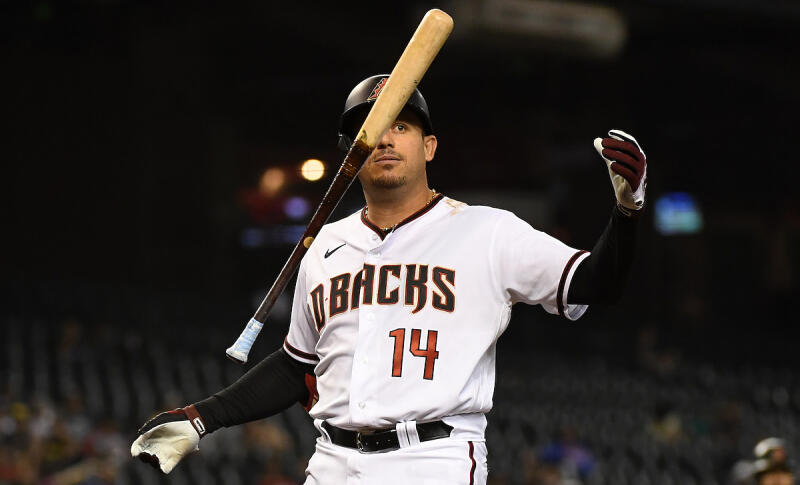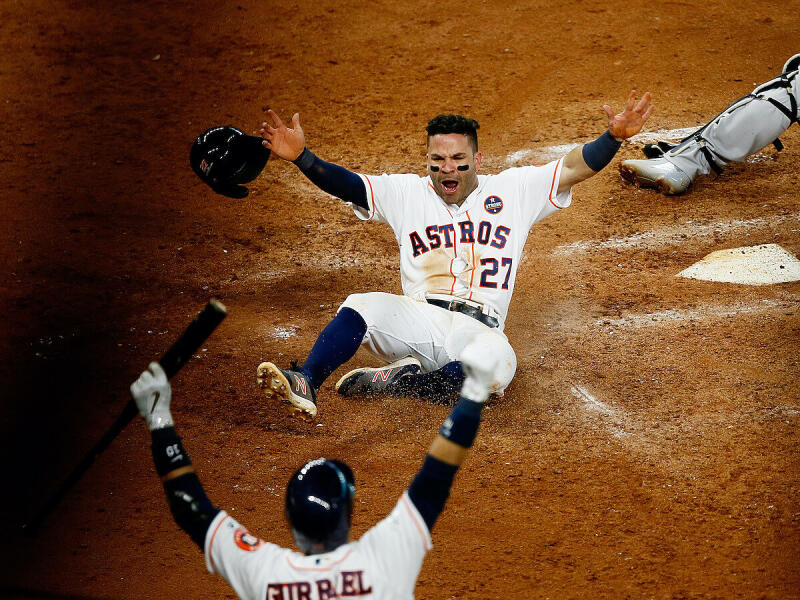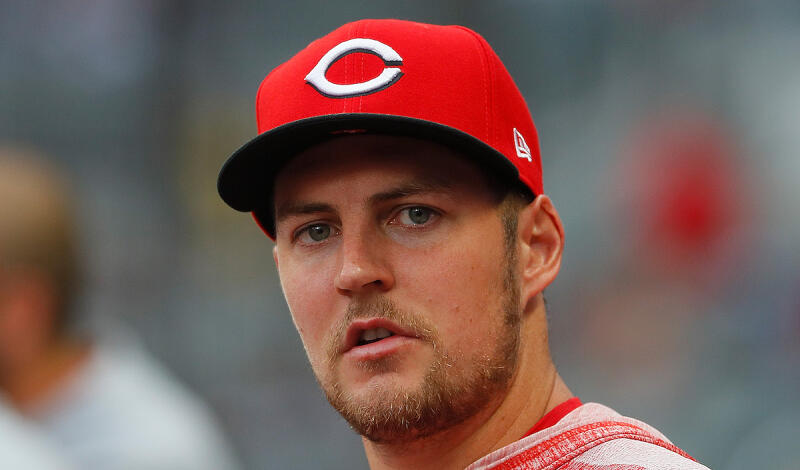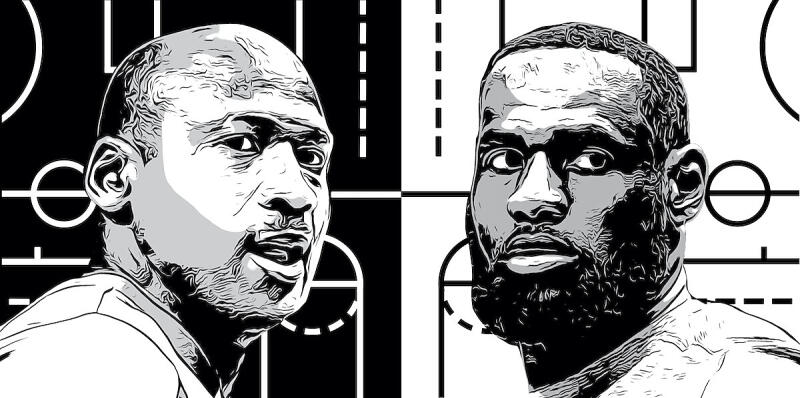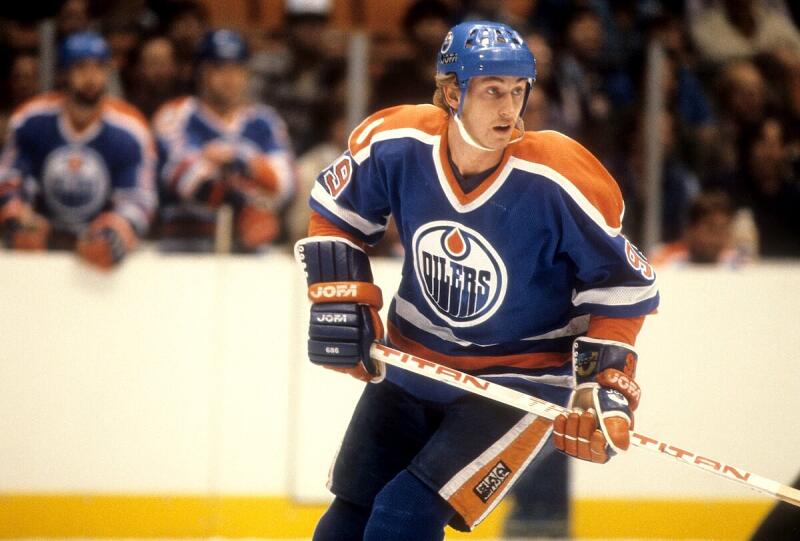We Just Ranked the 10 Worst Trades in MLB History
For whatever reason, few things in baseball get fans more excited than trades. Whether it’s the summer trade season or the winter Hot Stove, fans love seeing MLB teams pull off deals.
Perhaps it’s because teams are often willing to trade big stars. In the past decade alone, the likes of Chris Sale, Justin Verlander, Zack Greinke, Christian Yelich, Aroldis Chapman and Josh Donaldson have all been dealt, some more than once. At the same time, swaps also involve high-level prospects who provide a glimmer of hope to the team that’s trading away its biggest star. Whether we realize it or not, players such as Wil Myers, Noah Syndergaard, Gleyber Torres, Austin Meadows and Fernando Tatis Jr. were all once prospects involved in a trade for a more established player.
Of course, not every MLB trade can prove to be a good deal for both sides. After all, you make enough trades and a few of them are bound to be bad ones that surely backfire. However, in hindsight, some trades look utterly stupid and make us wonder how any general manager agreed to such a deal. In recognition of those trades that some fans would like to forget, we present for you the 10 worst trades in MLB history.
READ: The Worst Trades in NBA History
10. Baltimore Orioles Trade Jake Arrieta to the Chicago Cubs
The funny thing about this trade is that the Orioles were in playoff contention when they traded Arrieta and Pedro Strop to the Cubs for Scott Feldman and Steve Clevenger. Baltimore had declared Arrieta a bust and didn’t think he was worth keeping. Of course, he immediately turned things around when he got to Chicago. Arrieta ended up winning Cy Young honors in 2015, pitching a pair of no-hitters and ultimately helped the Cubs win the 2016 World Series.
Strop also had several good seasons in Chicago and was a part of the team that won the World Series. Meanwhile, Feldman was solid but not good enough to get Baltimore to the playoffs that year before leaving in free agency the following winter.
9. Oakland Athletics Ship Mark McGwire to the St. Louis Cardinals
Was Oakland trying to avoid the PR nightmare that would eventually come when McGwire became the poster boy for steroid use? Maybe, but having McGwire and Jose Canseco together all of those years didn’t exactly save them from bad press. Instead of trying to re-sign McGwire, the club shipped the slugger to St. Louis at the trade deadline in 1997 for a trio of nobodies in T.J. Matthews, Blake Stein and Eric Ludwick. The next year, after re-signing with the Cardinals over the winter, McGwire captivated all of baseball by hitting 70 home runs.
Eventually, McGwire brought shame to the game when everyone learned that he got a little bit of help, but that doesn’t change the fact that the A’s lost their chance to be the center of the baseball world during the summer of 1998.
8. Chicago Cubs Deal Lou Brock to the St. Louis Cardinals
If you’re going to trade a future Hall of Famer, you should at least avoid trading him to one of your biggest rivals. Alas, the Cubs made both mistakes in 1964 when they sent Brock to the Cardinals for Ernie Broglio. For what it’s worth, Broglio had led the league with 21 wins just a few years prior while Brock hadn’t produced much in Chicago early in his career. However, the move to St. Louis jump-started Brock’s career. During the remainder of the 1964 season, he hit .348 and helped the Cardinals win the World Series.
The rest is history, as Brock would become a six-time all-star, won another World Series with the Cardinals in 1967 and became a first-ballot Hall of Famer. As for Broglio, he posted a 6.93 ERA in 1965 and a 6.35 ERA in 1966, winning just three games for the Cubs in what became the final two seasons of his career.
7. Montreal Expos Send Randy Johnson to the Seattle Mariners
Near the end of their time in Montreal, the Expos made a lot of trades they knew wouldn’t help them in the short-term. But this trade was still made when the club was supposedly trying to win games. In fairness, Johnson was rocking a 6.67 ERA over seven appearances in 1989 when he was traded. But he was lights out the previous September when he got his first call-up to the majors. More importantly, he made five of his 10 All-Star appearances as a member of the Mariners and eventually became a five-time Cy Young winner and first-ballot Hall of Famer. In return for him, the Expos got Mark Langston and Mike Campbell, making it obvious that they gave up on The Big Unit way too soon.
6. Boston Red Sox Trade Jeff Bagwell to Houston Astros
Trades made out of desperation rarely work out. That’s a lesson the Red Sox learned the hard way when they gave away minor league first baseman Jeff Bagwell for reliever Larry Anderson late in the 1990 season.
Boston hoped Anderson would put them over the top, but the Red Sox ended up getting swept in the ALCS with Anderson taking the loss in Game 1. He then left as a free agent after the season. But things got even worse for Boston after that. The Red Sox had to sit back and watch Bagwell become one of the best first basemen of the 1990s, starting with Bagwell winning Rookie of the Year in 1991.
The Astros star went onto win MVP honors in 1994 and was inducted into the Hall of Fame in 2017. In their desperation to improve their bullpen, the Red Sox lost out on one of the best first basemen to ever play.
5. Los Angeles Dodgers Unload Pedro Martinez to Montreal Expos
The Dodgers haven’t made a ton of bone-headed moves in their history, but this was a big one. They just gave up on a pitcher who would become one of the best to ever step on the mound. In their defense, Martinez wasn’t the biggest guy, so the Dodgers questioned his durability as a starter and used him mostly out of the bullpen in his first full season in 1993. However, he was amazing in that role, winning 10 games and posting a 2.61 ERA.
While second baseman Delino DeShields, who the Dodgers got for Pedro straight-up, was a decent player, his best years came after leaving Los Angeles. Ultimately, they gave up a Hall of Famer at the start of his career for next to nothing.
4. Montreal Expos Deal Pedro Martinez to Boston Red Sox
As dumb as it was for the Dodgers to trade Pedro, it was worse when the Expos did it because they knew what they had. During his four seasons in Montreal, Martinez won 55 games. He also answered questions about his durability by starting at least 30 games three times. Just for good measure, he went 17-8 with a 1.90 ERA and 13 complete games the year before the Expos shipped him away.
Somehow, Martinez's best seasons were still ahead of him, and the Expos decided to trade him rather than try to sign him to a long-term deal. Not only did they miss out on the version of Pedro who won three Cy Youngs, but Carl Pavano and Tony Armas Jr. were nothing special during their time in Montreal, as the Expos didn’t come close to getting market value when they traded Pedro.
3. New York Mets Send Nolan Ryan to California Angels
The Mets have always been able to develop great pitchers, but they’ve also let a couple of great ones get away. For what it’s worth, Ryan was good but not great during his time in New York. He showed flashes of brilliance but also had plenty of rough moments. Alas, the Mets gave up on him too soon, trading him to the Angels before the 1972 season for Jim Fregosi. The problem is that Fregosi had arguably the worst season and a half of his career while with the Mets, hitting just .233 over 146 games before he was shipped to Texas.
Naturally, Ryan came alive immediately after leaving the Mets. During his first season with the Angels, he made his first of eight All-Star Teams, leading the league in strikeouts on his way to Cooperstown.
2. New York Mets Trade Away Tom Seaver to Cincinnati Reds
Trading Ryan was bad, but it got worse for Mets fans a few years later when they sent Seaver to the Reds for four players who became absolute nobodies. At the time he was traded, Seaver had been an All-Star 10 times, won three Cy Youngs and practically carried the Miracle Mets to the 1969 World Series. For crying out loud, he was so important that he was nicknamed "The Franchise." Yet, the Mets didn’t want to pay Seaver the money he thought he was worth, so they traded him in a move that Mets fans still rue to this day, largely because it’s emblematic of the team’s longstanding unwillingness to pay its star players in order to keep them.
1. Boston Red Sox Sell Babe Ruth to the New York Yankees
Odds are, nothing in baseball history will ever top the stupidity of the Red Sox selling Babe Ruth to the Yankees. Ruth had excelled as both a pitcher and a hitter with the Red Sox for six seasons, helping Boston to three World Series titles. Exactly why the Red Sox's Harry Frazee felt compelled to sell him to the Yankees is largely a mystery. But what we do know is that Ruth went to New York and became one of the biggest stars in baseball history.
In his 14 seasons with the Yankees, the club won the American League pennant seven times and the World Series four times. More importantly, Ruth helped to jumpstart a dynasty that lasted for decades after his career ended. Meanwhile, selling Ruth began what many believe to be the “Curse of the Bambino,” which doomed the Red Sox to a championship drought that lasted over 80 years and included some painfully close losses. Selling Ruth to a rival was perhaps the worst decision a professional sports team has ever made.
Photo: Getty Images
Our editorial content strives to be highly informative and educational to our audience, especially for visitors who are new or relatively new to analyzing and predicting sporting event results. All of our content is created by informed writers with backgrounds in their subject area and reviewed for omissions or mistakes.
Our editorial team is run by individuals with many years of experience in digital publishing, editorial, and content production. Our editorial content is always marked clearly in any instances where it may be sponsored by a third party, though it is still reviewed by our staff to ensure it remains consistent with our company mission.
- Popular
- Latest


